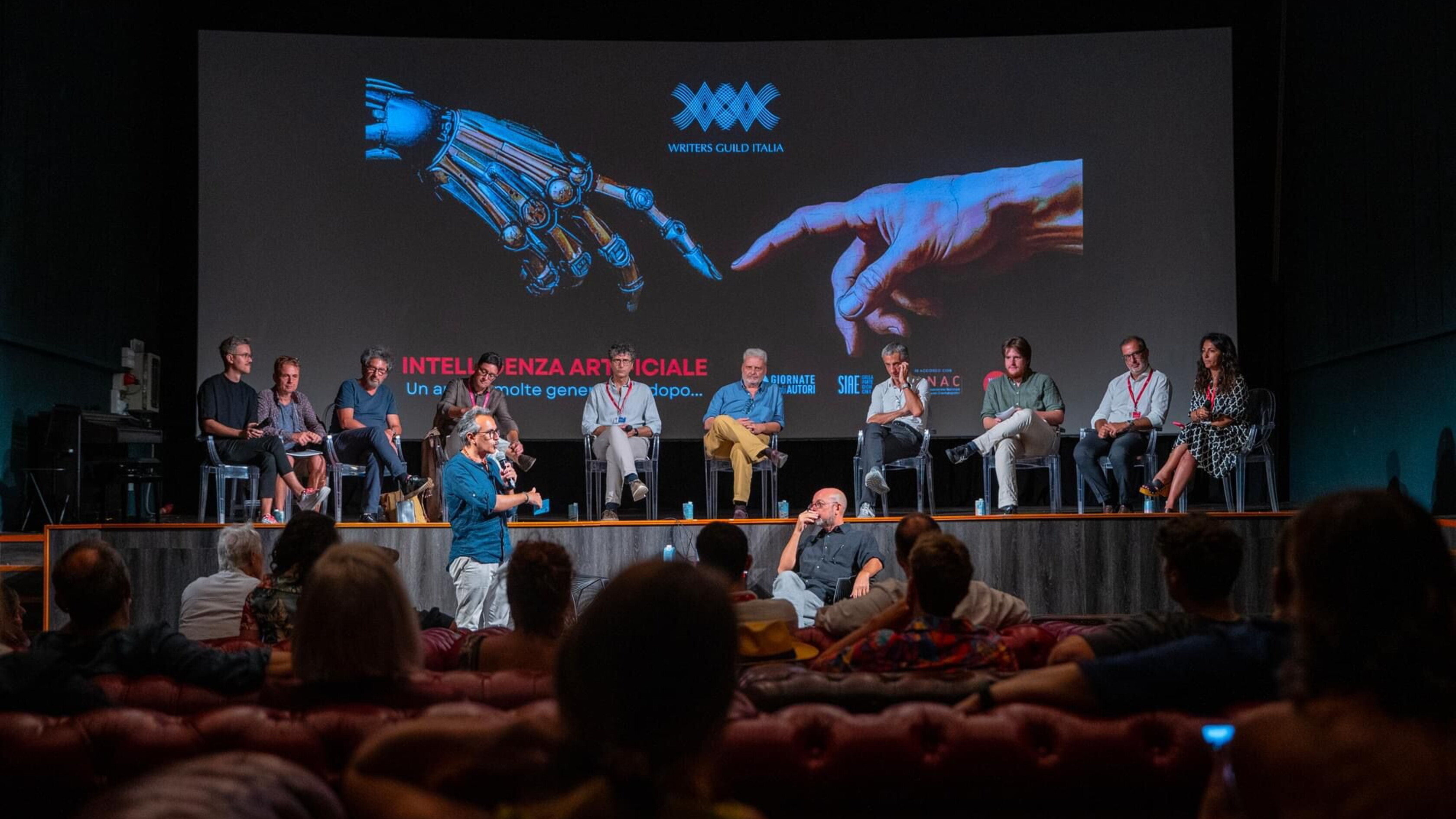Just a year ago at the Venice Lido we were starting to discuss Artificial intelligence and creative writing. The occasion was offered by the first panel organized by WGI, the screenwriters’ union, called to respond to the doubts and especially the fears of the authors. The appointment was repeated on the sidelines of this edition of the Festival, also to take stock of a year in which many things have changed. AGI talked about it with Vinicio Canton and Andrea Traina screenwriters, AI experts, and WGI board members.
“This year there has been a huge surge in generative AI for images and videos,” says Traina, “a leap that has not occurred in text generation, which confirms that there is actually a limit to text creation that, given how AI works, cannot be exceeded.”
Fears that a bot might take the place of a real author also seem to be fading.
“It’s a tool that requires an expert operator,” adds Traina, “a lot of firewood but the spark must be human creativity.”
Canton cites an example of lived writing: “I used chatGPT for a verb tense that didn’t sound right, but when I got into specifics and the AI proposed a text, it trivialized the content,” he says, “which made me face a reality: maybe I’m the one who’s writing in a way that’s too complicated.”
But isn’t there at this point a risk of trivialization of the content, of a flattening downwards of both the content and the style in the cinematographic and television language?
“The risk is there,” admits Traina, “but the problem is that there is a demand for banality and it is the screenwriters who must oppose this drift. But the key to creativity lies in the originality of the approach you have to a theme and that AI will never be able to offer. There may be a system that writes the next episode of a banal soap, but it will never be able to write even one scene of an innovative series, precisely because, by its nature, it is based on what has already been written and said.”
Over the past twelve months, however, AI capabilities have also developed, especially in maintaining focus on context.
“The next step,” says Traina, “could be to use AI to evaluate a project. But this applies to producers as well as screenwriters and could trigger a virtuous cycle that pushes real-life authors to surpass AI and strive to create more original, intelligent and less banal projects.”
The impact of AI will also likely be felt on employment contracts – WGI has completed a draft of a category contract with a labor lawyer that did not exist in the sector until now – and according to Canton, one of the prejudices to be overcome is that a job, if carried out with the help of AI, must be worth less. “To use AI effectively and efficiently, you have to be up to date and raise your professional level. Thinking that this lowers your compensation or economic value is an aberration.
